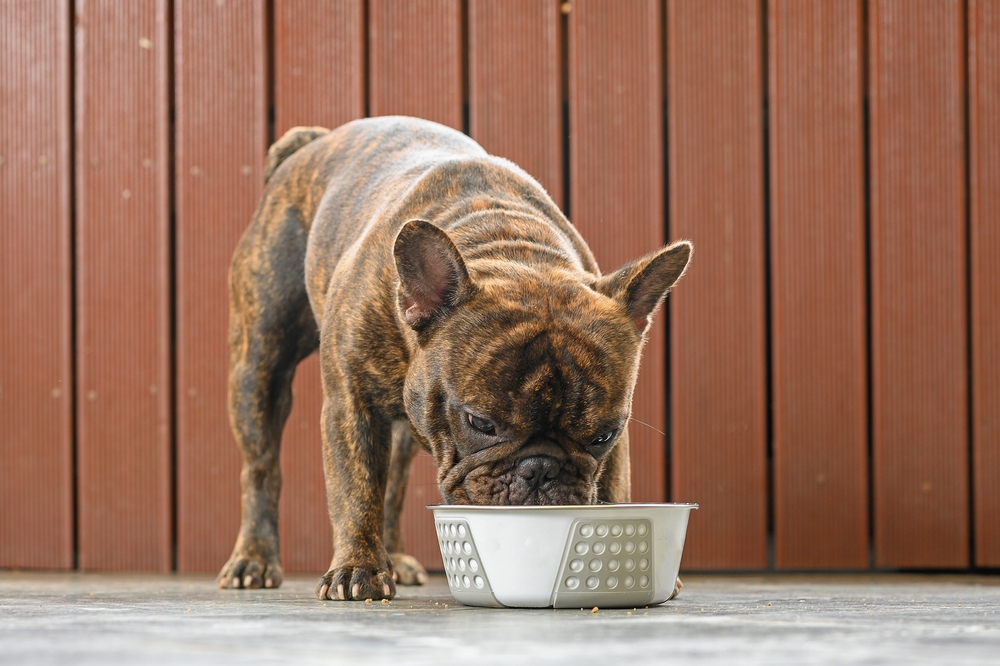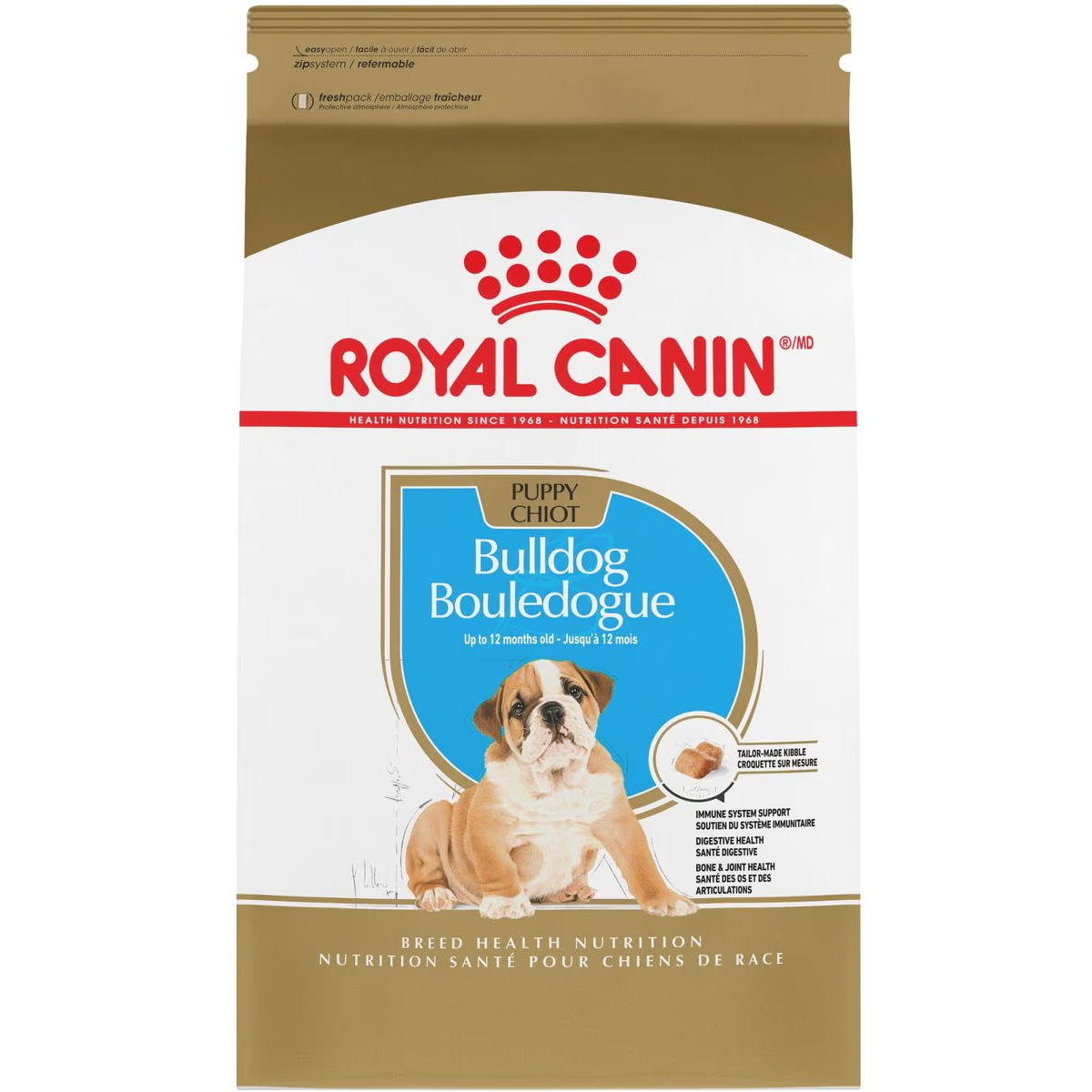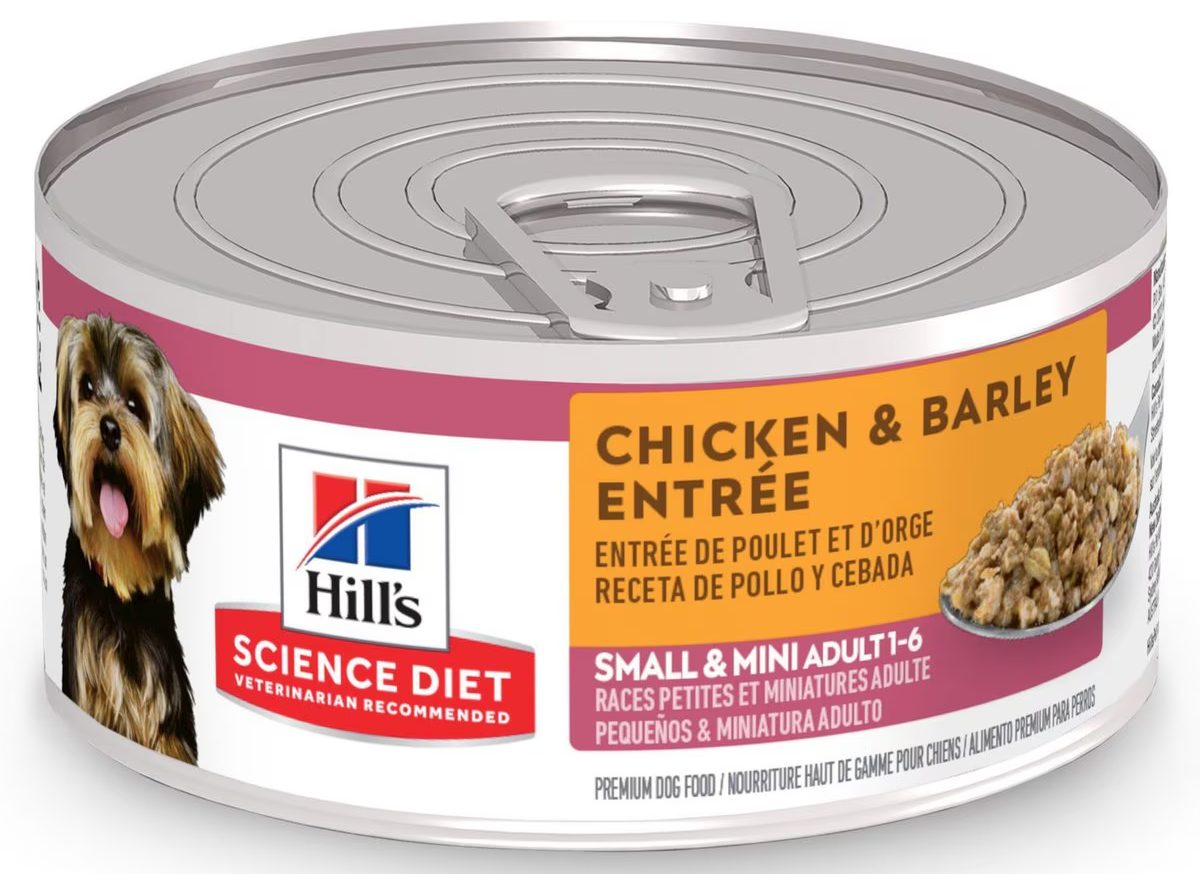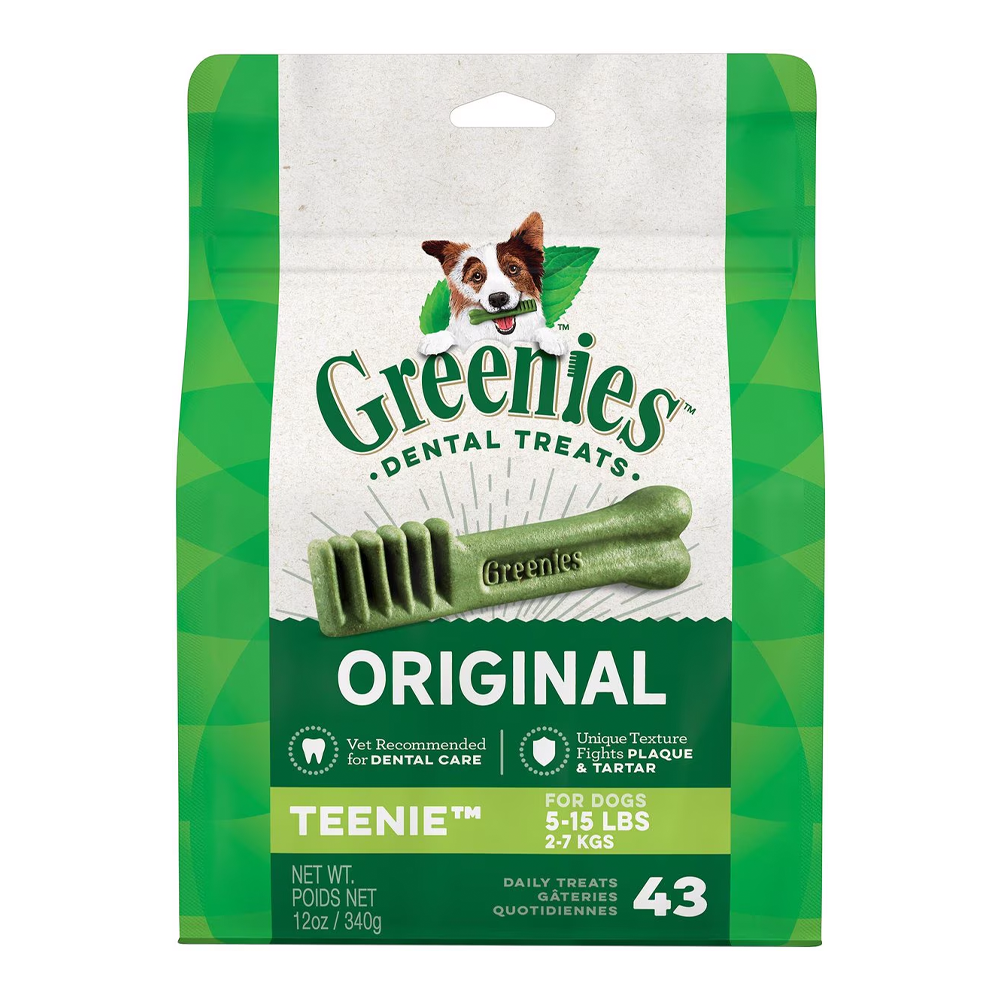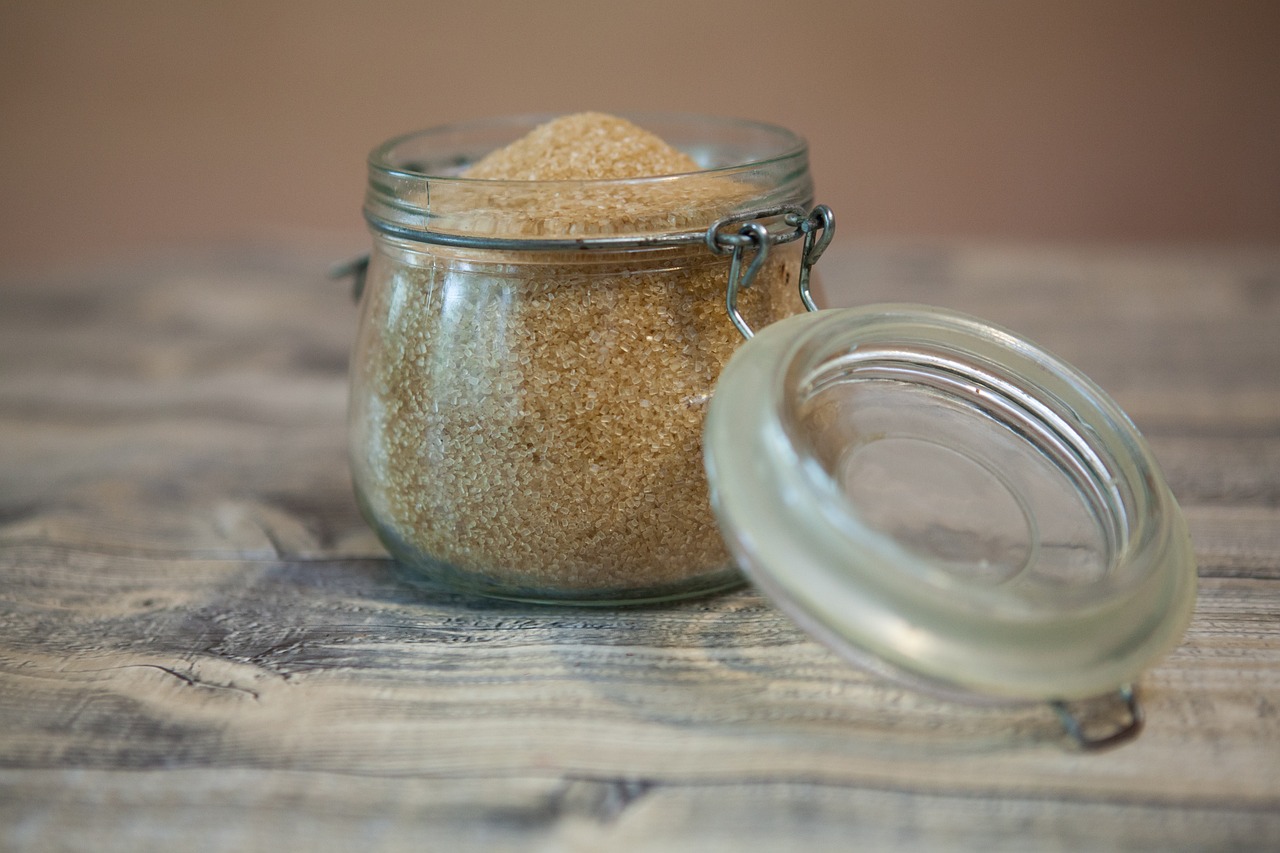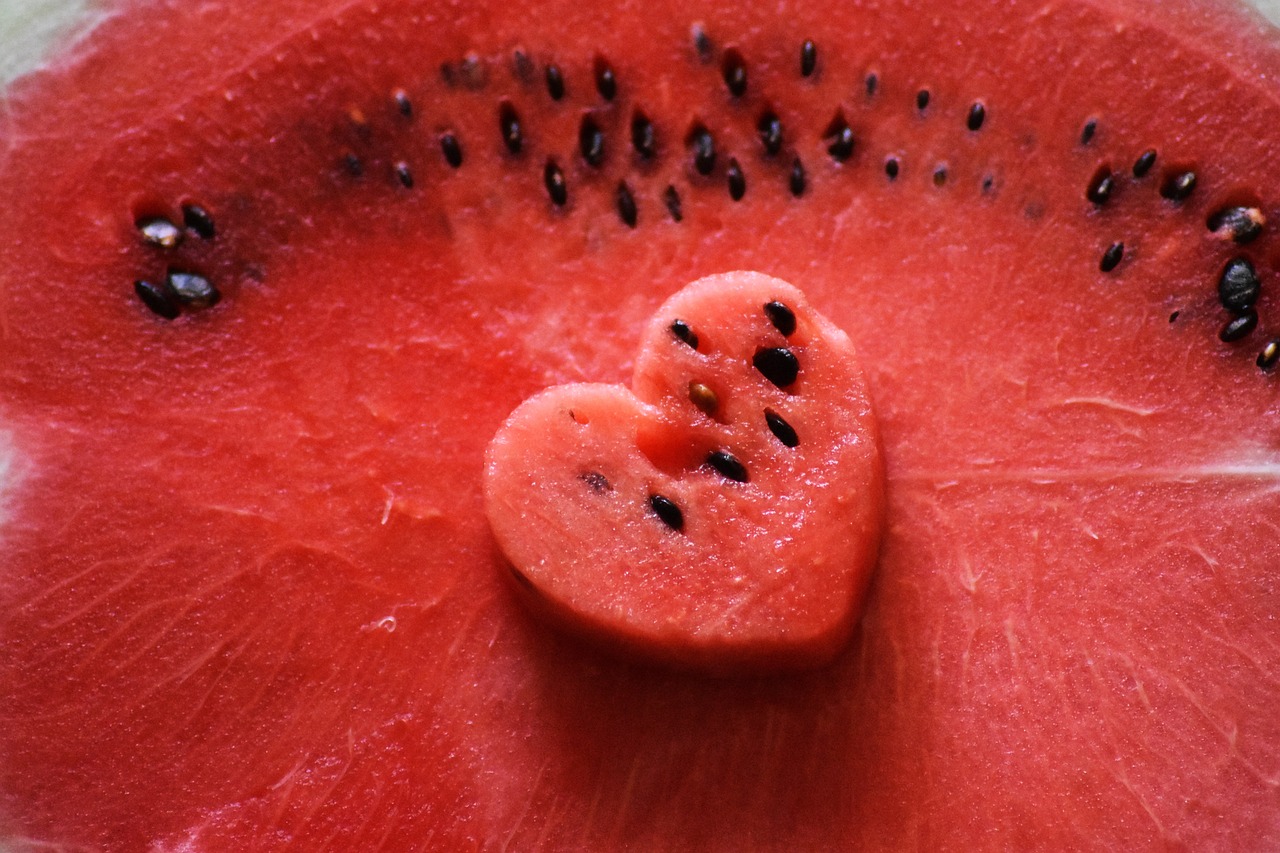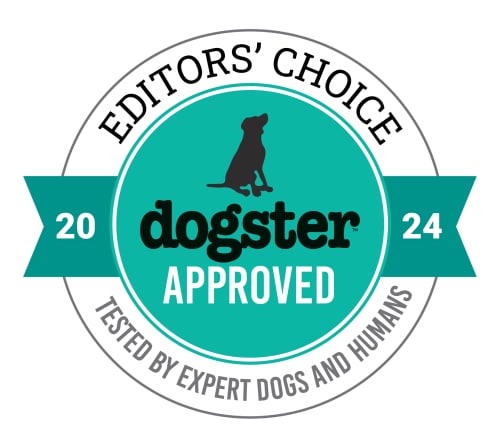Click to Skip Ahead
According to the American Kennel Club (AKC)1 , the French Bulldog is the most popular breed in the United States, overtaking the beloved Labrador Retriever. As a brachycephalic dog, the Frenchie is vulnerable to several health conditions. Therefore, it behooves pet owners to give them the best start in life, beginning with a healthy diet. It’s an excellent foundation for longevity and a good quality of life.
Fortunately, the Association of American Feed Control Officials (AAFCO)2 helps caregivers make informed choices about the foods and diets they offer their canine companions by setting standards for pet food nutrition and labeling.
The 5 Foods That French Bulldogs Can Eat
1. Kibble for the Frenchie’s Life Stage and Weight
Dog food and the pet industry have come a long way from the unfortunate history of horse meat. The nutritional profiles of the AAFCO make it easy to give your pet a complete and balanced diet. Manufacturers have taken up the cause with better products suited to the unique needs of dogs and specific breeds. Enter Royal Canin’s Tailored Nutrition line.
The company produces kibble specifically formulated for French Bulldogs and their dietary needs. We can’t think of a better way to build a healthy dietary foundation.
2. Canned Food for the Frenchie’s Life Stage and Weight
Many people prefer giving their dogs kibble because of the convenience. However, some pets prefer canned food, which can also help Frenchies meet their moisture requirements. Hill’s Science Diet has you covered with a tasty product that ensures your pup is getting everything they need, along with adequate fiber with its barley content.
3. Treats
Greenies Teenie Original Chicken Flavor Dental Dog Treats do double duty by providing convenient dental health care in a tasty form. Treats should comprise no more than 10% of your Frenchie’s daily caloric intake. You can rest assured you’re doing something for your pup’s health by giving them these treats. They’re ideal if your dog doesn’t tolerate you brushing their teeth.
4. Safe Fruits
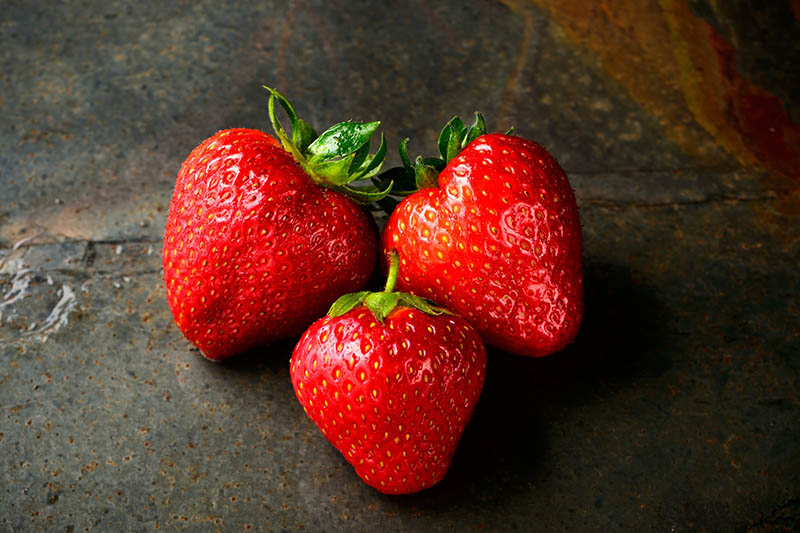
Fruits add diversity to your pup’s diet and are a nice break from processed commercial treats.
- Strawberries
- Blueberries
- Peaches
- Pears
- Pumpkin
- Apples
5. Non-Toxic Vegetables
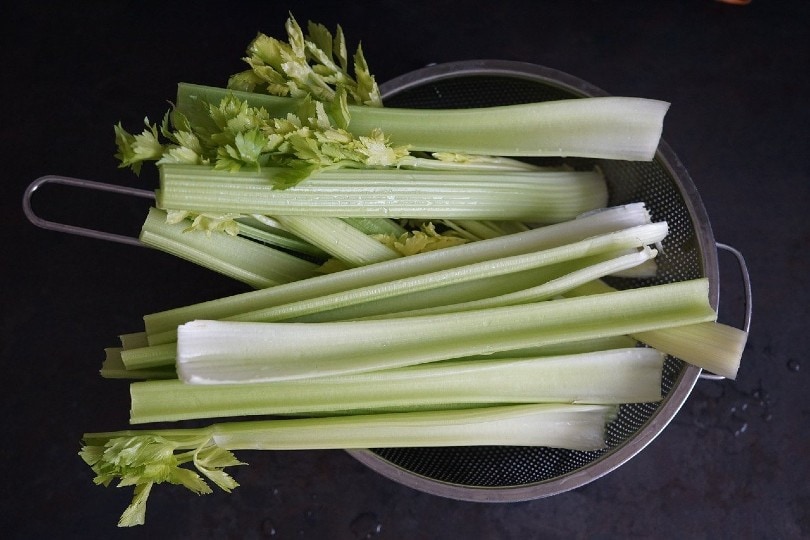
We can make similar recommendations with vegetables. They contain less sugar and fewer calories than fruits. Many have fiber to help your dog feel sated for longer, and they can support healthy weight loss.
- Peas
- Green beans
- Celery
- Carrots
- Broccoli
Tips for a Healthy Diet for Your French Bulldog
Pet food manufacturers must adhere to specific guidelines and regulations when marketing their products. One consideration is their nutritional value. These needs vary with the life stage and weight of the animal. You’ll also find diets geared to the unique requirements of some dogs, including weight control, food allergies, and digestive issues.
The AAFCO creates nutritional profiles based on the percentage and weight in grams based on dry matter. For a pet food to be labeled as “complete and balanced” in the nutritional adequacy statement it must meet or exceed AAFCO’s minimum requirements. You’ll find this information on the product’s label with its guaranteed nutritional analysis. Many ingredients sound familiar as items you’ll find in human foods. While dogs share 84% of our DNA, there are stark differences.
For example, humans must get vitamin C from their diet. Cats and dogs can synthesize this nutrient in their bodies and don’t need to consume it. Likewise, we can eat foods our pets can’t, such as chocolate, onions, and grapes. Our nutrient requirements also vary.
Puppies, pregnant, and lactating dogs should get 22.5% protein by dry matter and 8.5% fat. These figures are higher than adult pups on a maintenance diet because of the added demands on their bodies during these life stages. Their numbers are 18.0% and 5.5% respectively. It’s worth noting that fat is an important nutrient in the correct types and amounts to fulfill a dog’s energy needs, allow absorption of fat soluble vitamins, and to supply essential fatty acids.
Weight Control
The French Bulldog has a relatively high tendency for weight gain. We suspect their cute faces are a factor. Who can resist them waiting for another treat? But you must refrain from indulging your pet. According to the Association for Pet Obesity Prevention, the ideal weight range for females is 16–24 pounds and 20–28 pounds for males.
That translates into daily caloric counts roughly between 433 and 659 for weight maintenance. That number can fluctuate depending on whether your pet is spayed or neutered, and their activity level. A daily half-hour walk can usually satisfy the majority of their exercise needs. You must take charge of meeting their activity levels since the French Bulldog isn’t particularly energetic or intense about exercise. Your pup’s body condition is an excellent way to monitor their weight.
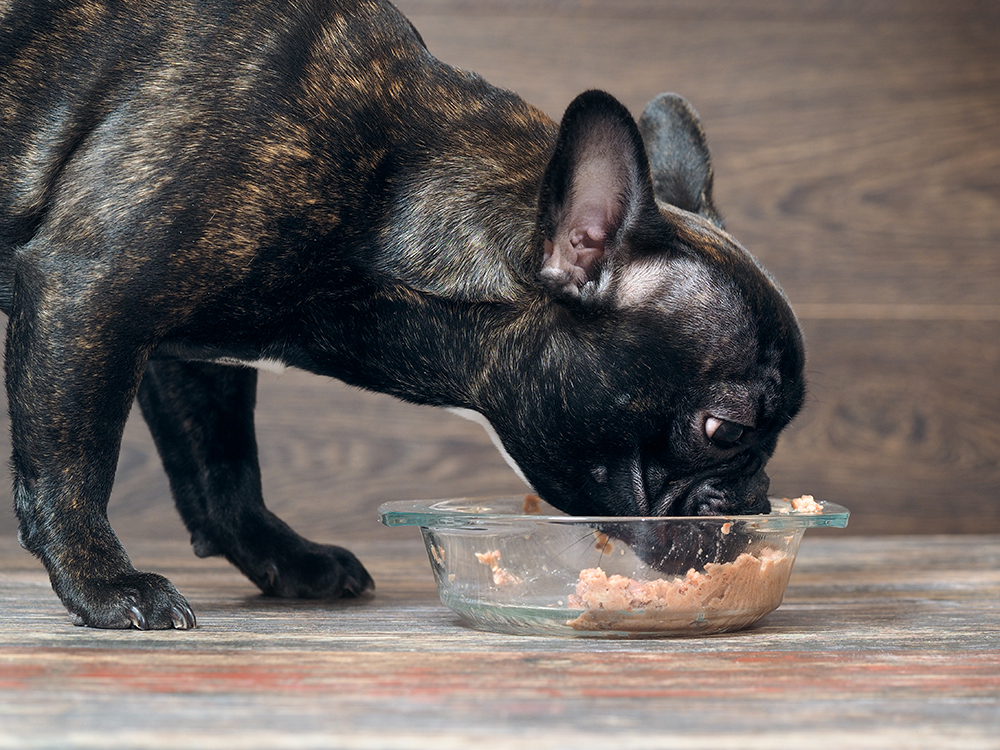
A Word About Grains
Canine biology has changed with domestication. We have changed the animal’s behavior and diet, which have manifested themselves into genetic changes. Our dogs can digest starch, and they usually have no problems with grains. Nevertheless, unscrupulous marketers deride grains and promote their grain-free offerings. The reality is that most canines with food allergies have more issues with animal protein than grains.
Whole grains can be a healthy source of nutrition for dogs containing carbohydrates, fiber, protein, vitamins and minerals.
Conclusion
Specialty diets exist for French Bulldogs that offer tailored nutrition. We recommend these products since they’re formulated for the pups’ unique digestive needs. Your pet can also eat many human foods, including several fruits and vegetables. However, we suggest introducing them slowly to prevent an upset stomach, and it’s vital to monitor your dog for any adverse reactions.
Featured Image Credit: Elayne Massaini, Shutterstock

